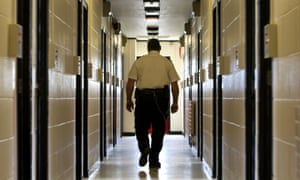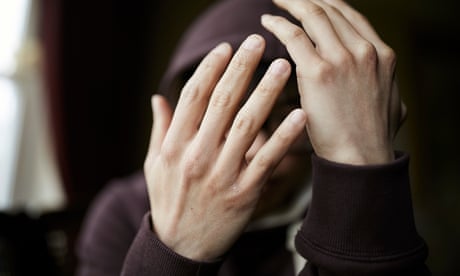Mistaken identity leads to illegal detention of trafficking victim
UK Home Office payout for trafficked man detained in mistaken identity mix-up
Vietnamese national was illegally detained for five months after Home Office refused to accept he was not someone else
Trafficking in focus is supported by


Annie Kelly From The Guardian UK


The Home Office will pay £45,000 in compensation to a trafficking victim for illegally detaining him in an immigration removal centre for more than five months after it mistook him for another man who had been deported from the UK in 2011.
The victim – known as NN – was unlawfully detained in Morton Hall immigration removal centre last year after the Home Office refused to accept he was not another Vietnamese national, referred to in court as T. The Home Office only agreed to carry out fingerprint tests after NN’s lawyers threatened legal action.
NN was discovered at a cannabis farm in 2017 but was not identified as a potential victim of trafficking. Instead he was charged and convicted for cannabis cultivation.
During his criminal trial, the Home Office wrongly identified him as T and told the Crown Prosecution Service that it believed he had illegally re-entered the UK after being deported in 2011.
NN was sentenced to 242 days in prison but, at the end of his criminal trial, the judge ruled the Home Office had made a mistake.
Despite this, the Home Office continued to refer to the victim as T, detaining him at Morton Hall immigration detention centre after he left prison on the grounds that he had breached his deportation order.
In immigration detention, NN continued to insist that he was not T. Staff at Morton Hall compared photos of NN and T and informed the Home Office that differences between the two men had been noticed. However, the Home Office did not investigate and continued to maintain that the two men were the same person.
NN was assaulted in immigration detention and identified, following a medical assessment, as an adult at risk and potential victim of torture. Under Home Office guidelines he should have been deemed unsuitable for detention and released. But the Home Office refused, using the details of T’s case to argue that detention should continue.
After NN had been in detention for three months, law firm Duncan Lewis took on his case and threatened legal action unless the Home Office carried out basic fingerprint tests to establish his identity. It also demanded that NN’s case was passed into the National Referral Mechanism, the framework for identifying and protecting victims of slavery in the UK.
NN was identified as a potential victim of slavery and released from detention on 12 July 2018, at which point he was placed in safe house accommodation. A month later, the Home Office finally accepted they had made a mistake but still continued to process NN’s trafficking claim under T’s name.
After he was released from detention, Duncan Lewis started legal proceedings against the Home Office for the unlawful detention of their client. Earlier this month, NN – who has been diagnosed with post-traumatic stress syndrome and depression – accepted a Home Office offer of £45,000 in compensation.Advertisement
The government has since confirmed that NN is a victim of slavery and was forced into cannabis cultivation. He is now attempting to appeal his criminal conviction.


“NN was detained by his traffickers, he was stripped of his identity and was subjected to physical and psychological abuse. He finally escaped his captors only to have his identity stripped by the home secretary and [be] subjected yet again to false imprisonment,” said Ahmed Aydeed, who is representing NN at Duncan Lewis.
“NN’s unwavering determination to regain his identity and liberty is inspirational, but there is something fundamentally wrong with our system if this is the path victims have to go through to access justice.”
NN was trafficked to the UK in 2016 via Hong Kong, Russia, Poland and France. He was held to ransom by trafficking gangs in the UK and forced into domestic servitude and cannabis cultivation in a series of properties. He says he was beaten and told he would be killed if he tried to escape.
It is increasingly accepted that the UK’s booming domestic cannabis industry has become inextricably linked with the trafficking and forced labour of Vietnamese children and adults. In 2018, 484 Vietnamese nationals were identified as potential victims of forced labour, with the majority of cases linked to cannabis cultivation.
The Home Office said in a statement: “We do not routinely comment on individual cases.”
NOTE FROM NEWS SOURCE:
The Guardian has a small favour to ask. More people are reading and supporting The Guardian’s independent, investigative journalism than ever before. And unlike many news organisations, we have chosen an approach that allows us to keep our journalism accessible to all, regardless of where they live or what they can afford. But we need your ongoing support to keep working as we do.
The Guardian will engage with the most critical issues of our time – from the escalating climate catastrophe to widespread inequality to the influence of big tech on our lives. At a time when factual information is a necessity, we believe that each of us, around the world, deserves access to accurate reporting with integrity at its heart.
Our editorial independence means we set our own agenda and voice our own opinions. Guardian journalism is free from commercial and political bias and not influenced by billionaire owners or shareholders. This means we can give a voice to those less heard, explore where others turn away, and rigorously challenge those in power.
We need your support to keep delivering quality journalism, to maintain our openness and to protect our precious independence. Every reader contribution, big or small, is so valuable. Support The Guardian from as little as $1 – and it only takes a minute. Thank you.





